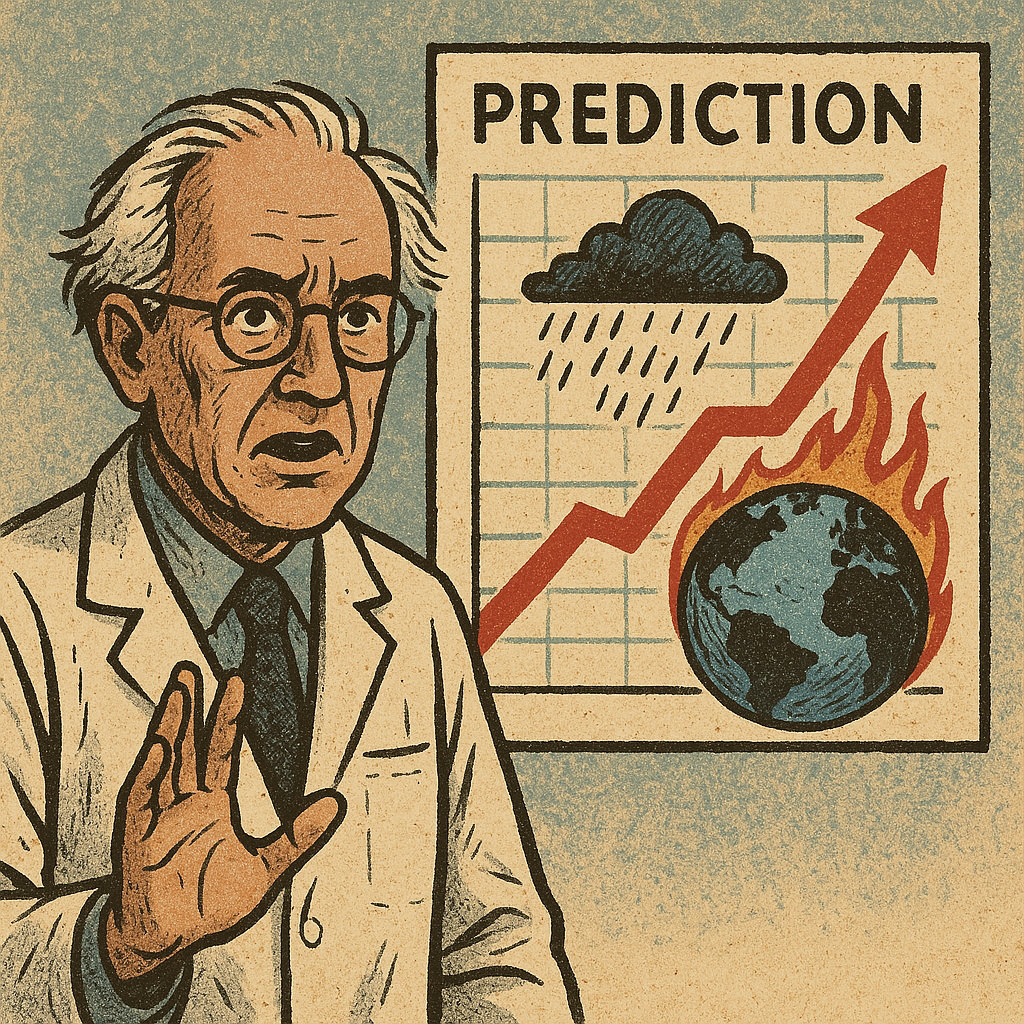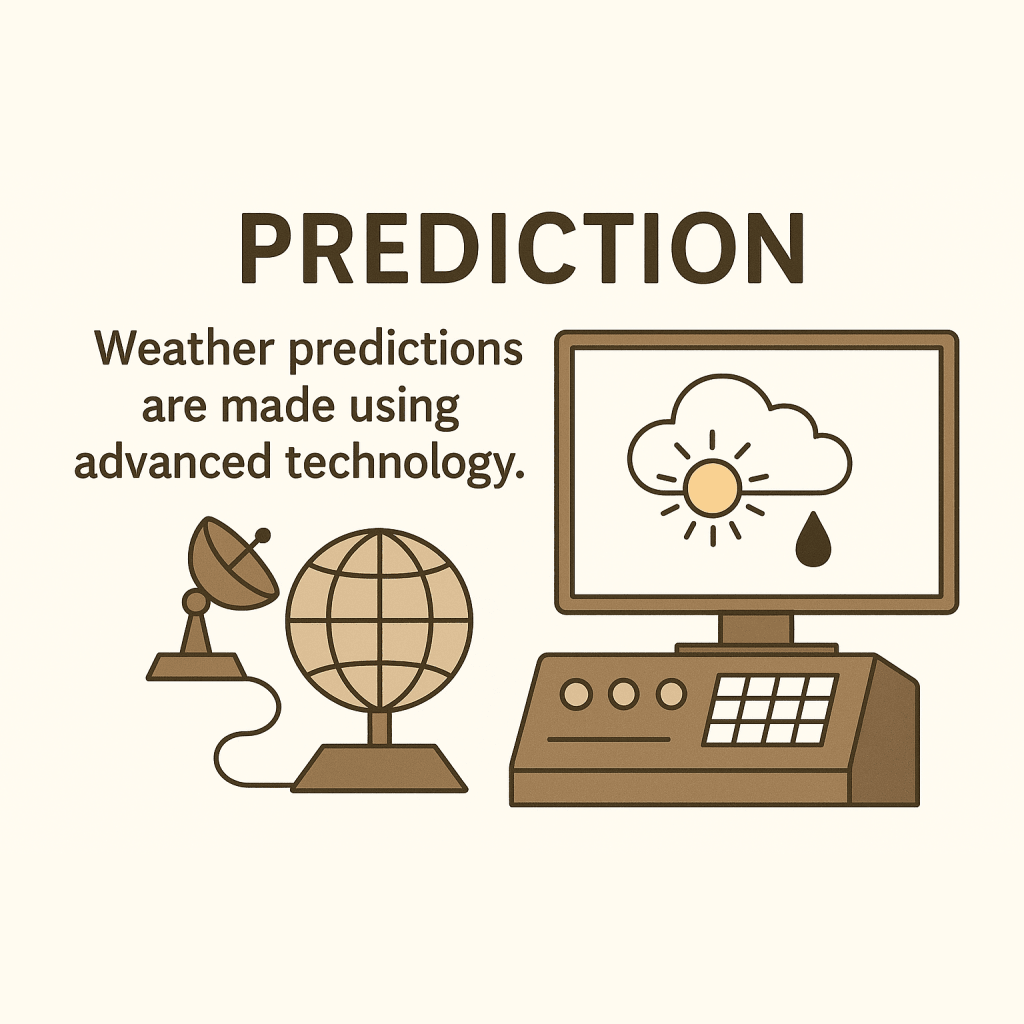Prediction
Definition
Prediction is a noun that refers to the act of forecasting or stating what will happen in the future based on current information or evidence.
Parts of Speech
- Noun
Pronunciation
American English
- IPA Pronunciation: /prɪˈdɪk.ʃən/
- Respelling: pruh-DIK-shuhn
British English
- IPA Pronunciation: /prɪˈdɪk.ʃən/
- Respelling: pruh-DIK-shuhn
Etymology
The word "prediction" originates from the Latin "praedictio," meaning "a foretelling," derived from "praedicere," meaning "to foretell" or "to proclaim," composed of "prae-" (before) and "dicere" (to say).
Derivatives
- Predict (verb)
- Predictable (adjective)
- Predictive (adjective)
- Predictor (noun)
- Unpredictable (adjective)
Synonyms
- Forecast
- Projection
- Prophecy
Antonyms
- Uncertainty
- Hindsight
- None
Usage
The term "prediction" is commonly used in contexts related to weather, scientific research, and future planning. Examples include "The prediction of rain turned out to be accurate" and "Economic predictions influence policy decisions."
Related Terms
- Forecasting: The process of predicting future events.
- Estimation: A rough calculation or judgment about the future.
- Projection: A prediction based on current trends.
Detailed Definitions
Noun
- The act of forecasting future events: Refers to making statements about what will happen based on current knowledge.
- Example: "The scientist's prediction about climate change was alarming."
- A statement about future outcomes: Refers to a specific declaration of what is expected to occur.
- Example: "Her prediction of the election results was accurate."
- The result of using models or theories to foresee events: Refers to conclusions drawn from data or observations.
- Example: "Weather predictions are made using advanced technology."
prediction



🇨🇳 Mandarin
- 预测 (yùcè)
- IPA: /y˥˩ tsʰɤ˧˥/
- English respelling: yu-tseh
- 预言 (yùyán) - prophecy, prediction
- IPA: /y˥˩ jɛn˧˥/
- English respelling: yu-yen
🇮🇳 Hindi
- भविष्यवाणी (bhavishyavaani)
- IPA: /bʱəʋiʂjəʋaːɳiː/
- English respelling: bha-vish-ya-vaa-nee
- पूर्वानुमान (poorvaanumaan) - forecast, prediction
- IPA: /puːɾʋaːnumaːn/
- English respelling: poor-va-anu-maan
🇪🇸 Spanish
- Predicción
- IPA: /pɾeðikˈθjon/
- English respelling: pre-di-thyon
- Pronóstico - forecast, prediction
- IPA: /pɾoˈnostiko/
- English respelling: pro-nos-ti-ko
🇫🇷 French
- Prédiction
- IPA: /pʁediksjɔ̃/
- English respelling: pre-dik-syon
- Prévision - forecast, prediction
- IPA: /pʁevizjɔ̃/
- English respelling: pre-vi-zhon
🇸🇦 Modern Standard Arabic
- تنبؤ (tanabbu')
- IPA: /tæˈnæbbuːʔ/
- English respelling: ta-nab-boo
- توقع (tawaqqu') - expectation, prediction
- IPA: /ta.waʔ.ʔu/
- English respelling: ta-wa-q'u
🇧🇩 Bengali
- অনুমান (onumaan)
- IPA: /onuman/
- English respelling: o-nu-maan
- পূর্বাভাস (poorbaabhaas) - forecast, prediction
- IPA: /puɾbabaʰas/
- English respelling: poor-ba-bhaas
🇷🇺 Russian
- Прогноз (prognoz)
- IPA: /prəɡˈnos/
- English respelling: pro-gnos
- Предсказание (predskazaniye) - forecast, prediction
- IPA: /prʲɪd.skə.zanʲɪjə/
- English respelling: preed-ska-za-nee-ye
🇵🇹 Portuguese
- Previsão
- IPA: /pɾɨ.viˈzɐ̃w̃/
- English respelling: pre-vee-zoun
- Predição - foretelling, prediction
- IPA: /pɾɨ.ˈdɨsɐ̃w̃/
- English respelling: pre-dee-soun
🇮🇩 Indonesian
- Prediksi
- IPA: /prəˈdiksi/
- English respelling: pre-dik-see
- Ramalan - forecast, prediction
- IPA: /rəˈmalan/
- English respelling: ra-ma-lan
🇩🇪 German
- Vorhersage
- IPA: /foːɐ̯ˈheːrsaːgə/
- English respelling: for-hayr-sa-ge
- Prognose - forecast, prediction
- IPA: /proɡˈnoːzə/
- English respelling: pro-gno-ze
🇯🇵 Japanese
- 予測 (yosoku)
- IPA: /jo̞so̞kɯ̟ᵝ/
- English respelling: yo-so-ku
- 予言 (yogen) - prophecy, prediction
- IPA: /jo̞ɡẽ̞ɴ/
- English respelling: yo-gen
🇻🇳 Vietnamese
- Dự đoán
- IPA: /zʊə˨˩ ɗoa˨˩n/
- English respelling: zue doan
- Tiên đoán - foretelling, prediction
- IPA: /tiən˧˥ ɗoa˨˩n/
- English respelling: tien doan
🇰🇷 Korean
- 예측 (yecheuk)
- IPA: /jʌt͡ɕʰʌk̚/
- English respelling: ye-chuk
- 전망 (jeonmang) - forecast, prediction
- IPA: /t͡ɕʌnmaŋ/
- English respelling: jeon-mang
🇹🇷 Turkish
- Tahmin
- IPA: /tahmin/
- English respelling: tah-min
- Öngörü - foresight, prediction
- IPA: /ønɟøɾy/
- English respelling: on-gor-yu
🇵🇰 Urdu
- پیش گوئی (pesh goi)
- IPA: /peːʃ goː.iː/
- English respelling: pesh go-ee
- توقع (tawaqqo) - expectation, prediction
- IPA: /t̪əʋɑːq.qoː/
- English respelling: ta-vaq-ko





